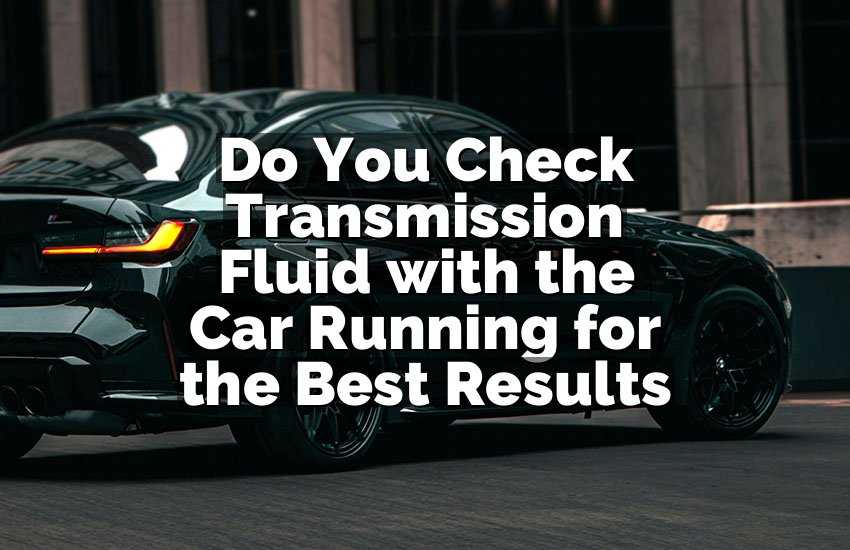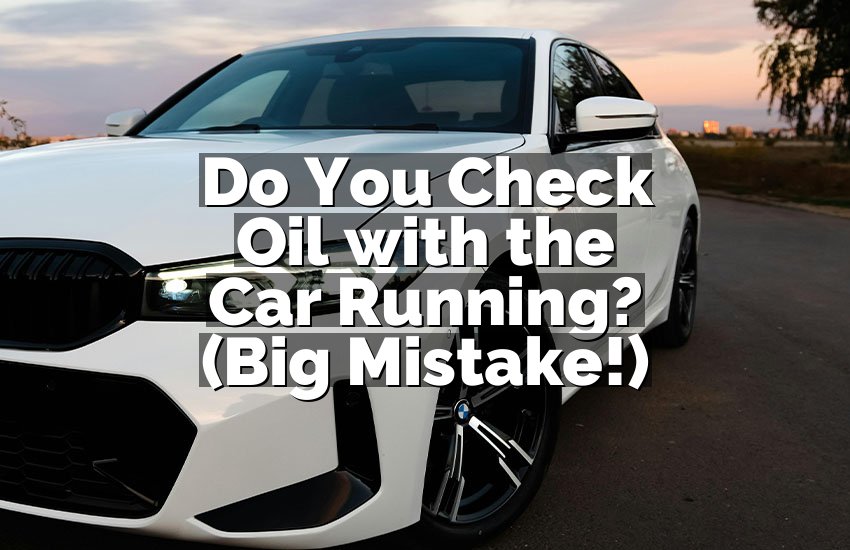Your car might start shaking and show the EPC light, which can be pretty worrying. The EPC light stands for Electronic Power Control, and it helps manage things like the engine and throttle. When this light turns on, it’s letting you know there’s an issue.
Shaking can mean a few things, like a problem with the engine, fuel system, or other parts. It’s important to get it checked out soon to avoid bigger problems. In this blog post, we’ll break down what might be causing these issues and what you can do to get your car running smoothly again.
Common Causes of Car Shaking in Volkswagen Vehicles
1. Engine Misfire
One common cause of car shaking is an engine misfire. This happens when one or more of your engine’s cylinders don’t fire correctly. When this happens, the engine can run unevenly, causing the car to shake. Misfires can be caused by spark plug problems, fuel injector issues, or a faulty ignition coil.
2. Worn-Out Engine Mounts
Another reason your Volkswagen might shake is worn-out engine mounts. These mounts hold the engine in place and absorb vibrations. If they wear out or get damaged, the engine can move around more than it should, making the car shake. You might notice this shaking mostly when you start the engine or drive at low speeds.
3. Unbalanced or Misaligned Wheels
If your wheels are unbalanced or misaligned, your car might shake. Unbalanced wheels can cause vibrations that you feel in the steering wheel or seats. Misaligned wheels can also cause shaking, especially at higher speeds. It’s important to have your wheels balanced and aligned regularly to avoid these problems.
4. Faulty Transmission
A faulty transmission can also cause your car to shake. The transmission is what changes gears and transfers power from the engine to the wheels. If it’s not working properly, you might feel shaking or jerking when you drive. This issue often requires professional help to fix.
5. Problems with the Suspension System
The suspension system keeps your car smooth and steady while you drive. If parts of this system, like shocks or struts, become worn out, they can cause the car to shake. You might feel these shakes more on rough roads or bumps.
Understanding these common causes can help you figure out why your Volkswagen is shaking. If you notice any of these issues, it’s a good idea to get your car checked by a professional.
How EPC Light and Car Shaking May Be Related
1. Engine Performance Issues
The EPC light often indicates problems with engine performance, such as misfires or poor fuel delivery. When the engine isn’t running smoothly, it can cause the car to shake. For instance, if the EPC light is on due to a problem with the fuel injectors, the engine might not get the right amount of fuel, leading to a rough ride.
2. Faulty Sensors
The EPC system relies on various sensors to monitor engine performance. If one of these sensors, like the throttle position sensor or the mass airflow sensor, is faulty, it can trigger the EPC light. This can affect how the engine runs, causing shaking. A bad sensor might make the engine behave erratically, leading to noticeable vibrations.
3. Throttle Control Problems
The EPC light can also be triggered by issues with the throttle control system. If the throttle body or electronic throttle control is malfunctioning, the engine might not respond properly to your acceleration inputs. This can cause the car to shake as it struggles to maintain a steady speed.
4. Transmission Issues
Sometimes, problems with the transmission can trigger the EPC light. If the transmission isn’t shifting gears smoothly or is having trouble, it can affect engine performance and cause shaking. Transmission problems can be complex, so it’s important to have them checked out if the EPC light comes on along with shaking.
5. Sensor and Component Failures
The EPC system controls various engine components to ensure smooth operation. If these components fail, it can trigger the EPC light and lead to shaking. For example, a faulty ignition coil or spark plug can disrupt engine performance, causing both the EPC light to illuminate and the car to shake.
In summary, when the EPC light is on, it often signals issues that can make your car shake. Identifying and fixing these problems early can help you avoid further damage and ensure a smoother ride.

Diagnosing the Problem: What to Check First
1. Scan for Error Codes
When the EPC light is on and your car is shaking, the first thing to do is use an OBD-II scanner. This tool connects to your car’s computer and reads error codes. These codes are like clues that tell you what might be wrong. To use the scanner, you plug it into the car’s OBD-II port, which is usually found under the dashboard near the steering wheel.
Once it’s connected, turn on the ignition and follow the scanner’s instructions to read the codes. Each code corresponds to a specific problem, like issues with the throttle or sensors. For example, if the scanner shows a code for a bad throttle position sensor, you know where to start looking.
Reading the error codes can save you time and help you find the problem more quickly. If you don’t have a scanner, many auto parts stores offer free code reading services. It’s a good idea to start here, as it gives you a clear direction on what to check next.
2. Inspect Spark Plugs and Ignition Coils
Next, you should check the spark plugs and ignition coils. Spark plugs are important because they help ignite the fuel in the engine. If they are worn out or damaged, they can cause the engine to misfire, which might trigger the EPC light and make the car shake. To check them, you’ll need to locate them under the hood.
They are usually attached to the ignition coils. Remove the spark plugs one by one and look at their condition. If they look dirty or worn, replacing them could fix the problem. Ignition coils are also important because they send electrical power to the spark plugs. If they are faulty, they can cause similar issues.
Inspect them for any visible signs of damage or wear. If you find any problems with the spark plugs or ignition coils, replacing them can help get your engine running smoothly again. This step is crucial because a misfiring engine can make your car shake and run poorly.
3. Check the Fuel System
After checking the spark plugs and ignition coils, you should look at the fuel system. The fuel system includes the fuel injectors and the fuel filter. Fuel injectors spray fuel into the engine, and if they are clogged or not working properly, the engine may not get enough fuel, causing it to shake and the EPC light to come on.
To check the fuel injectors, you can listen for any unusual noises or feel for vibrations. A mechanic can also test them for proper operation. The fuel filter, on the other hand, keeps dirt and debris out of the fuel. If it’s clogged, it can restrict fuel flow, leading to engine performance issues.
Replacing a dirty fuel filter can often solve these problems. If you notice that the fuel system is not working correctly, cleaning or replacing the fuel injectors and filter can help. Ensuring the fuel system is in good shape is important for smooth engine operation and preventing shaking.
4. Inspect Engine Mounts
Another important step is to check the engine mounts. Engine mounts are rubber and metal parts that hold the engine in place and absorb vibrations. If these mounts are worn out or damaged, they can cause the engine to move more than it should, making the car shake. To inspect them, look for any visible signs of damage, like cracks or breaks.
You can also check for excessive movement by gently rocking the engine while it’s running. If the engine moves too much, the mounts might be faulty. Replacing worn-out engine mounts can help reduce shaking and make your ride smoother.
Engine mounts are not always easy to check yourself, so if you’re unsure, it’s a good idea to have a professional mechanic look at them. Proper engine mount maintenance is crucial for preventing excessive vibrations and keeping your vehicle running smoothly.
5. Examine the Throttle Body
Finally, you should examine the throttle body. The throttle body controls how much air goes into the engine, which affects engine performance. If it is dirty or malfunctioning, it can cause the engine to run poorly, which might trigger the EPC light and make your car shake.
To check the throttle body, locate it under the hood, usually connected to the intake manifold. Look for signs of dirt or carbon buildup. You can clean it with a throttle body cleaner, but be sure to follow the instructions on the cleaner’s label. Also, check the throttle position sensor, which tells the car’s computer how open or closed the throttle is.
If the sensor is not working correctly, it can cause performance issues. If cleaning the throttle body doesn’t help, or if you notice any faults with the throttle position sensor, you might need to replace them. Keeping the throttle body clean and in good condition is important for smooth engine performance and preventing shaking.
Preventive Measures and Maintenance Tips
1. Regularly Check and Replace Spark Plugs
To prevent issues like engine misfires and shaking, it’s important to regularly check and replace your spark plugs. Spark plugs are crucial for igniting the fuel in your engine, and over time, they can wear out or get dirty.
Check your vehicle’s owner’s manual for the recommended replacement interval, which is usually every 30,000 to 50,000 miles. Regularly inspecting them and replacing them as needed can help keep your engine running smoothly and avoid problems that might trigger the EPC light.
2. Keep the Fuel System Clean
Maintaining a clean fuel system is key to preventing performance issues. Regularly replace your fuel filter, as a clogged filter can restrict fuel flow and cause the engine to run poorly.
Additionally, consider using a fuel system cleaner every few thousand miles to keep the fuel injectors clean and working efficiently. This can help prevent problems like fuel delivery issues, which can cause the car to shake and the EPC light to come on.
3. Maintain Engine Mounts
Engine mounts play a vital role in reducing vibrations and keeping the engine steady. To prevent issues with engine shaking, have your engine mounts inspected regularly, especially if you notice any unusual vibrations. If the mounts show signs of wear or damage, replacing them promptly can help maintain a smooth ride and prevent further damage to your vehicle.
4. Keep the Throttle Body Clean
A clean throttle body ensures that your engine receives the correct amount of air, which helps maintain proper engine performance. Check and clean the throttle body periodically, especially if you notice any rough idling or poor acceleration. Cleaning it with a throttle body cleaner can help prevent issues with engine performance and the EPC light.
5. Regularly Service Your Transmission
Transmission problems can lead to engine shaking and trigger the EPC light. To avoid these issues, follow your vehicle’s recommended transmission service schedule. This includes checking and replacing the transmission fluid as needed. Regular transmission maintenance can help prevent problems and ensure smooth gear shifting.
6. Follow a Routine Maintenance Schedule
Lastly, following your vehicle’s routine maintenance schedule is crucial. Regular oil changes, filter replacements, and inspections can help catch potential issues before they become serious problems. Keeping up with routine maintenance helps ensure that all parts of your vehicle, from the engine to the suspension, are in good condition and functioning properly.
By staying on top of these preventive measures and maintenance tips, you can help keep your Volkswagen running smoothly, avoid common problems, and prevent issues that might trigger the EPC light and cause your car to shake.
Questions in Your Mind
Is it safe to drive with the EPC light on?
Driving with the EPC light on is not ideal, as it indicates there may be a problem with your engine or related systems. It’s best to get your car checked by a mechanic as soon as possible to avoid further damage or potential safety issues.
Can a low battery cause the EPC light to come on?
Yes, a low or failing battery can sometimes trigger the EPC light. The EPC system relies on electrical power, and if the battery is weak, it can affect various components and cause the light to turn on.
Do I need to reset the EPC light after fixing the issue?
In most cases, the EPC light will turn off automatically once the issue is fixed. However, sometimes it may need to be reset manually using an OBD-II scanner. If the light remains on after repairs, a mechanic can reset it for you.
Can a dirty air filter cause the EPC light to come on?
A dirty air filter can affect engine performance, which might indirectly trigger the EPC light. While it’s not a direct cause, ensuring your air filter is clean can help maintain optimal engine performance.
Is it necessary to replace all ignition coils if one is faulty?
It’s not always necessary to replace all ignition coils if only one is faulty. However, if your vehicle has high mileage, it may be a good idea to replace all the coils to ensure consistent performance and avoid future issues.
Can using the wrong fuel cause the EPC light to come on?
Using the wrong type of fuel can potentially cause the EPC light to come on. It can affect engine performance and trigger various warnings, including the EPC light. Always use the fuel recommended by your vehicle’s manufacturer.
Do I need to replace the entire throttle body if it’s malfunctioning?
Not necessarily. Sometimes, cleaning the throttle body can resolve issues. However, if it’s severely damaged or malfunctioning, you might need to replace it. A mechanic can determine the best course of action.
Can a loose gas cap cause the EPC light to come on?
A loose or damaged gas cap usually triggers the Check Engine light rather than the EPC light. However, if the gas cap issue affects engine performance, it might indirectly cause the EPC light to come on.
Is it worth getting a second opinion if the EPC light is on?
Yes, if you’re unsure about the diagnosis or repair recommendations, getting a second opinion from another mechanic can be helpful. It ensures that you’re making the right decisions regarding repairs and maintenance.
Can driving style affect the EPC light coming on?
Driving style itself is not likely to trigger the EPC light. However, aggressive driving or frequent hard acceleration can put extra stress on engine components, which might exacerbate underlying issues that could cause the EPC light to come on.


